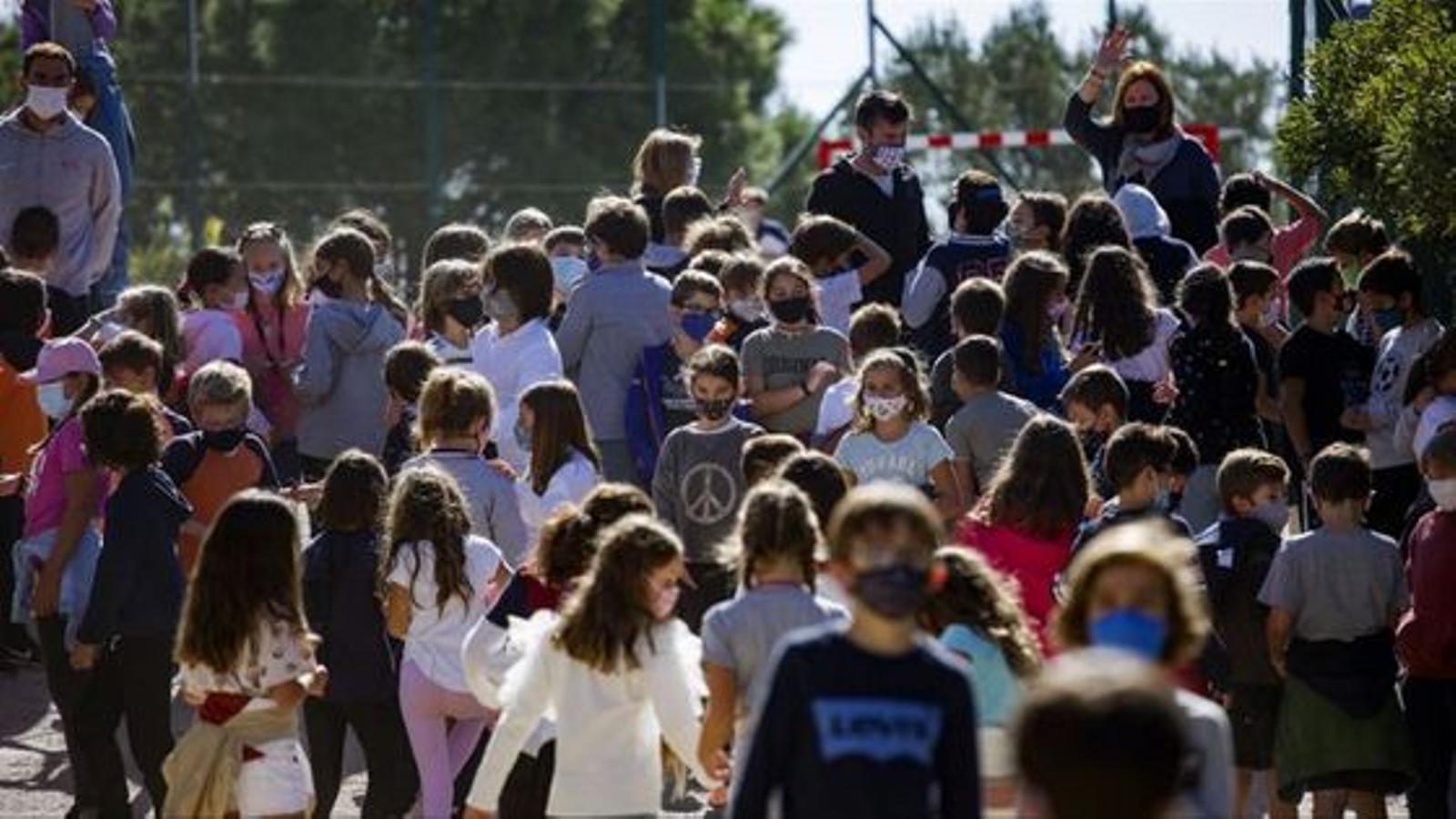"More Spanish only harms Spanish-speaking students"
Head teachers claim Catalan is minority language in many areas and maintain their commitment to immersion


BarcelonaHead teachers find the Supreme Court's ruling that establishes a minimum of 25% of classes to be taught in Spanish. Teachers agree that the linguistic immersion model has proved its success in ensuring that students of Spanish-speaking origin or other foreign languages have an exposure to Catalan that they would not otherwise have.
At the Mercè Rodoreda primary school in Martorell, Spanish reigns in the playground, "even among Catalan-speaking pupils", who "change language almost without realising when a single Spanish-speaking classmate appears," explains the school's head teacher, Gemma Lajarín. She believes that if the ruling is applied, it will mean a "setback" to all the progress that has been made in linguistic competence. "Will the playground count as teaching time in Castilian?" she asks.
This school is in the middle of one of the newly built neighbourhoods, where a majority of families who have Spanish as their mother tongue have settled. However, the school management is clear that Catalan has to be the language used both in the classroom and in meetings with parents. "If any of the families have any comprehension problems, we try to provide simultaneous translation or explain doubts when the meeting is over," Lajarín explains.
In Ciutat Meridiana,Toni Camacho, director of the Ferrer i Guàrdia School, notes that Catalan also meets obstacles in classrooms there. Hardly any of the school's pupils speak Catalan as their main language, nor is it heard in the street or in the shops in this suburb of Barcelona. The same thing happens in Badia del Vallès, where Las Seguidillas is located, a primary school with "one or two Catalan-speaking families", says the school's secretary, Núria Melo. These are two examples, they agree, in which if the presence of Catalan in the classroom is reduced, however little it may be, it will have a great impact because the centres are almost the only place where the children in the neighbourhood have contact with Catalan. However, in Badia, basic skills tests show that pupils have better marks in Catalan because they learn it in an academic way with rules and grammar, while their Spanish is infused with slang.
Both schools explain that teaching staff are aware of the importance of using Catalan in schools, when explaining curricular material but also when addressing pupils. Camacho, who says that he himself is a "proud product of linguistic immersion", believes the efforts have small rewards because the students end up "taking in Catalan" despite the fact that "they often have to be reminded that it is the classroom language".
Aware that in her high school in L'Hospitalet de Llobregat under 5% of students are from Catalan-speaking families, Carme Montroig tries to use Catalan in her classes but students almost without exception "ask questions in Spanish" during her interventions. I have to make an effort to answer them in Catalan," she admits. "In the end I mix them up but always with a predominance of Catalan".
No problems with families
In spite of the obstacles, Camacho emphasises that in the 13 years he has been head of Ferrer i Guàrdia school he has never had a complaint from a family about linguistic immersion because, he assures, they are aware that it is a system that works pedagogically. Proof of this is the success of a teacher's personal initiative to teach families Catalan as an after-school activity. While last year she attracted 22 parents, today there are 40 who follow her classes. "The Supreme Court's decision is an attack on a model that works very well," he concludes.
The community around Institut Montilivi in Girona is, unlike the other examples, mostly Catalan-speaking, both in terms of students and teachers. In the corridors there is a mixture of languages, but Catalan is often the main language. Like the rest of his colleagues, the school's director, Rubèn Pino, believes that if the number of classes in Spanish increased, "the only harm would be to Spanish-speaking students, who would lose hours of exposure to a language that is foreign to them".
At IPSI, a charter school in Barcelona's Esquerra del Eixample, the ruling is read as an "attack" against "everything that has a whiff of Catalan identity, language or culture", according to its head teacher, Oriol Blancher, for whom establishing quotas for language use "is crazy". Like all the school heads consulted, he affirms that "the command of the Spanish language is good" throughout Catalonia, while "the same cannot be said of the knowledge of Catalan" in some areas. "We answer to the Catalan Education Department and, for the moment, we don't plan to change the way we teach," says headmistress Núria Melo.
